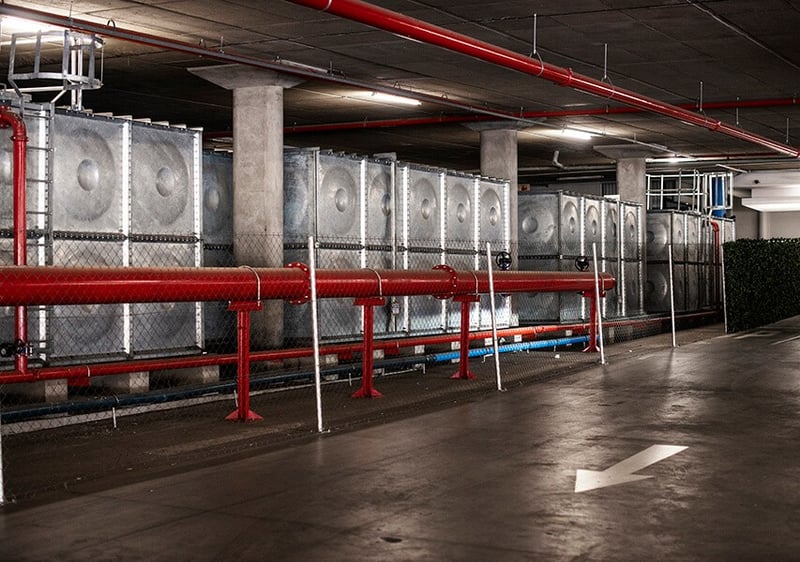South African shopping centres prepare for long-term water security measures
Submitted by: MyPressportal Team Save to Instapaper
Even though Cape Town narrowly escaped a drought four years ago, water scarcity still plagues most of South Africa. Recent research from the Water Resources Group suggests the lack of available water will worsen in the next few years with a third of the world’s population expected to be living in significant water stress come 2030.
For big businesses like shopping malls who have just about recovered from the pandemic, the threat of unreliable water sources spells disaster. Without water, mall tenants like restaurant chains and hair salons will be unable to operate, shoppers unable to use toilets, and everyone’s health, safety and hygiene put at risk if the mall doesn’t have enough water to maintain cleaning standards and be able to put out a possible fire.
Several of our shopping centres did implement some meagre water-saving measures during South Africa’s most recent water crisis, but according to Mannie Ramos Jnr, the COO of Abeco, installing a few tap aerators are simply not enough.
As a pioneer in water storage solutions, Abeco has been supplying their steel water storage tanks to almost 80 large malls across South Africa for more forty years now. Regarded as the world’s first bank for the business of water, Abeco’s mall clients include some of the largest in the country like Cresta, Mall of Africa and Sandton City in Johannesburg, Canal Walk in Cape Town, Mall of the North in Polokwane, and Oceans Shopping Centre in Umhlanga.
“Malls are a major economic driver in South Africa with more than 300,000 square metres of new leasable retail space set to be completed across the country this year alone. We are seeing a lot of this new retail space being developed outside of major cities, where there is unmet demand. This is concerning as we know that remote regions often don’t have reliable water infrastructure to begin with,” says Ramos.
For them to reduce, harvest, store and recycle enough water to be self-sustained in the future, shopping malls developers, their owners and managers must act now. Ramos shares six tips of what some malls have already been doing to secure their water supply:
1. Storage is key: As many of us have learned from loadshedding, failing to plan is planning to fail. Storing water in tanks has been done for centuries, allowing us to measure water consumption and track water saving for continuity of service. Longbeach Mall in the Western Cape for example installed five 10,000 litre tanks, which will be used as backup if the taps ever run dry.
2. Ensure rainwater harvesting: Although rainfall in South Africa can be unpredictable, using a combination of rainwater harvesting and innovative storage reduces the reliance on other sources of water and ensures year-round supply. “Table Bay Mall is a relatively new shopping development on Cape Town’s west coast and over the past six months have been used the contents of their 10,000-litre rainwater harvesting tank for cleaning and waste management purposes,” explains Ramos.
3. Filter, Filter, Filter: Correct filtration can mean your grey water can even be used in air conditioning cooling towers, which tends to use a lot of water. The two boreholes at Table Bay Mall each have filtration plants so that the water can be used in the main toilets and urinals and not just for irrigation purposes.
4. Building with sustainability in mind: Shopping mall developers should consider closed-circuited water systems, where unused water can be collected and then passed through various systems before being reused around the property.
5. Reducing reliance on unsustainable public water infrastructure: Consider installing low flow toilets and sinks which connect to a greywater system. Any non-potable water can be drawn from large, on-site storage tanks that are filled with rainwater and only toped up by the municipal grid if necessary. AT Table Bay, the municipal water supply is collected in nine domestic water tanks (with 20,000 litre capacity each). These have been designed to supply the mall with reserve water for approximately three days in the case of water interruptions.
6. Keeping tabs on global developments: Water technology is constantly progressing with some incredibly efficient desalination plants already in operation in places like Israel. Even architects are playing their part, designing buildings in such a way that they maximize rainwater harvesting. “At Tyger Valley Shopping Centre in Cape Town, the centre has even appointed a water expert to assist with scientific water-saving methods for the future so don’t be afraid to think outside the box and try something revolutionary,” concludes Ramos.
Water is a scarce resource and yet is one of the most important in the world, second to air. Without water, nothing can survive, including business, so it is essential we act now to secure this precious life-sustaining resource.
-- ENDS --
MEDIA CONTACT: Get PublishedNadia Hearn 074 923 3835
Latest Press Articles
- Grow Ecd's Curriculum Is Now Free To All Ecd Centres In South Africa
- Sustained Pressure On Sa Rhino Populations
- South African Music Royalty Celebrated At Metro Fm Music Awards 2025
- Schneider Electric At Aatf 2025 - Demonstrating True Industry Innovation
- Advertising Association And Warc Release Aa / Warc Expenditure Report
- Essence Appoints Pabi Cooper As Brand Ambassador
- Premier Skills Training Strengthens Pe Teaching In Mahikeng And Burgersfort
- Maybelline Partners With Nando's For '#hotmess' Campaign
- Getting The Most From Solar Storage
- Q&a With Export Manager Julia Joubert
- Shaping Africa’s Future - The Afro Futures 2050 Storytelling Project
- Lesaka Fintech Solutions Win Big At Absa Commercial Payments Awards 2025
- Tetley Taps Into Health Trend With New Decaf Tea For Hospitality And Retail
- Homechoice Empowers Staff With Training Programme
- Unplugged And Unpredictable - Reinventing The Radio Experience

